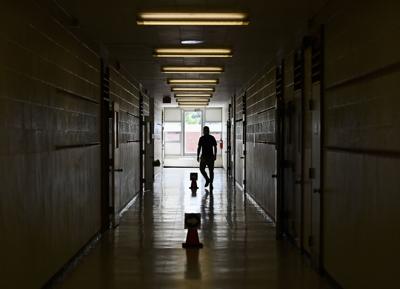Education Minister Paul Calandra claims Bill 33, The Supporting Children and Students Act, will make Ontario schools safer. How can that be true when it mandates the return of police to schools?
Proposing to bring back the School Resource Officer program, Calandra has turned his back on years of research that tells us that Black, Indigenous and racialized students do not feel safe attending schools with a police presence, that police in schools does not reduce the incidence of violence, but they do prop up the school-to-prison pipeline.
The Ontario Human Rights Commission, in its 2021 warned that SRO programs risked replicating systemic and discriminatory practices in the very spaces where children should be safest.
In the same report, data from showed that 62 per cent of Black respondents, and 68 per cent of LGBT2SQ+ respondents, disagreed with the idea that officers make school a safer place. Similar feedback was found at , and among others.
Currently, dozens of community organizations have and have planned a rally outside Queen’s Park for this Thursday at noon.Â
In a time when data is critical, when evidence is routinely upheld as the cornerstone of sound policy, Bill 33 ignores that record. Schedule Two compels boards to admit police at the request of any local service, with no consultation, no equity review, and no option to opt-out.
I grew up in Jane and Finch and still remember the grief and pain surrounding the death of Jordan Manners, the 15-year-old student shot and killed at C.W. Jefferys Collegiate Institute in 2007. At the time, community advocates, traumatized and seeking solutions acquiesced to School Resource Officers in school hoping that the humanity and dignity of Black students would be seen. The TDSB placed officers in over 40 schools.
Almost a decade later the TDSB disbanded the SRO program after a review surveying more than 15,000 students. While that review indicated that most respondents said they felt safer with police in schools, over 70 per cent also said they never interacted with an SRO. Over 800 of the students who did, said they felt uncomfortable and upwards of 2000 students indicated other negative sentiments, like feeling watched, targeted and intimidated. The authors of the report placed significant concern on these findings and recommended ending the program. Yet here we are again.
We cannot forget that this is the province where police went into a school and where school officials called the police on or where We also cannot forget just months ago a
É«É«À² police’s own data, tells us that Black people were 20 times more likely to be shot dead by police. Twenty times … a figure
With this bill, the Ford government is baiting the death or critical injury of a Black child at the hands of police. This is not hyperbole.
My own children, tall Black students, love school, but we see how the anticipation of suspicion erodes the mental health and achievement of students. It tells young people that the province where they once saw their future, sees them as threats and risks.
They should be protected by human rights law; the Ontario Human Rights Code prohibits discrimination in services. But Bill 33 makes racial disparity and disproportionality foreseeable.
The noted an increase in violent incidents in Ontario schools by 114 per cent between the 2017/18 and 2022/23 school years. But the recommendations on how to address the rise included increasing mental health supports via social workers, child and youth workers and educational assistants. It also reported that staffing for these mental health supports have not increased at the same rate at the documented demand.
This data does not propel the need for policing within schools; what it does illuminate is a clear systemic failure to meet students’ evolving needs.
If we want to change these outcomes, there is a better path. If the province truly wants to see a change in educational outcomes and achievements, they have to treat children like children. Invest in them. Create more roles for well-trained child and youth workers, culturally responsive mental health teams, and restorative practices to prevent the criminalization of Black students.
Ontario’s MPPs, duly elected to protect and work for all members of their communities, need to make their voices heard and must remove Schedule Two from Bill 33.
Parents, educators, and students are watching. We will write, march, litigate, and vote. If even one Black child is injured or harmed because an officer misreads teenage emotion, the names Ford and Calandra will forever be tied to that tragedy. Even if they won’t acknowledge it, Black children do matter.
Error! Sorry, there was an error processing your request.
There was a problem with the recaptcha. Please try again.
You may unsubscribe at any time. By signing up, you agree to our and . This site is protected by reCAPTCHA and the Google and apply.
Want more of the latest from us? Sign up for more at our newsletter page.
























To join the conversation set a first and last name in your user profile.
Sign in or register for free to join the Conversation